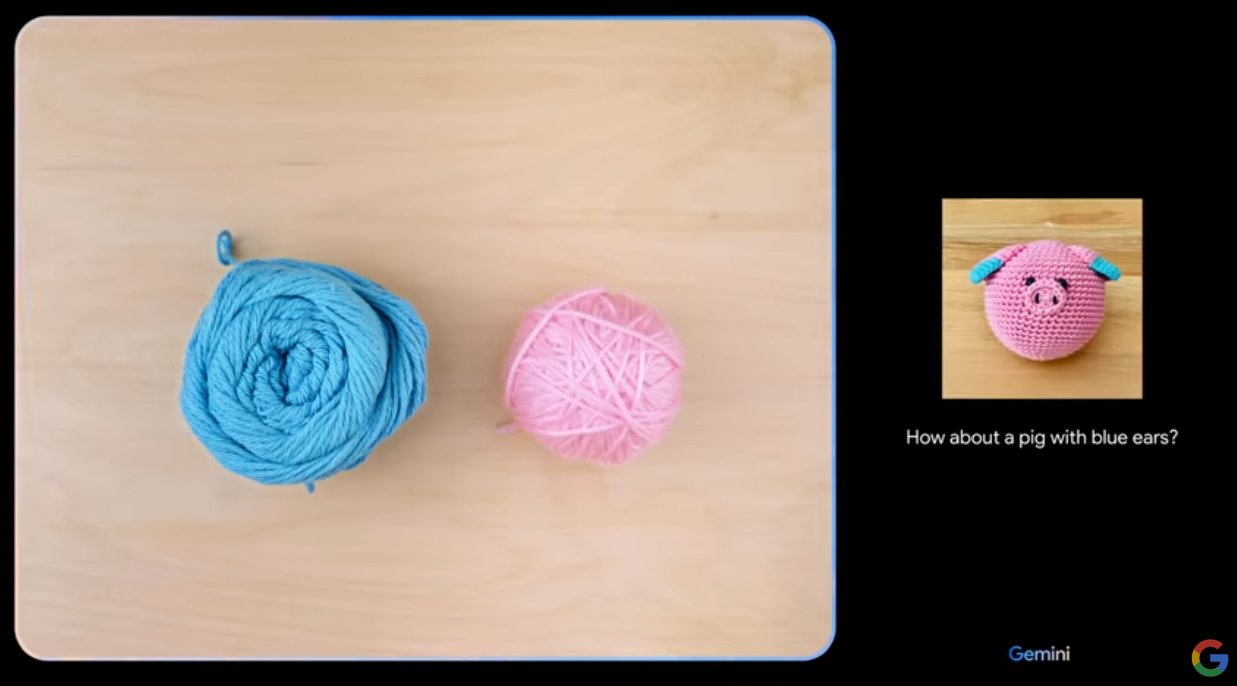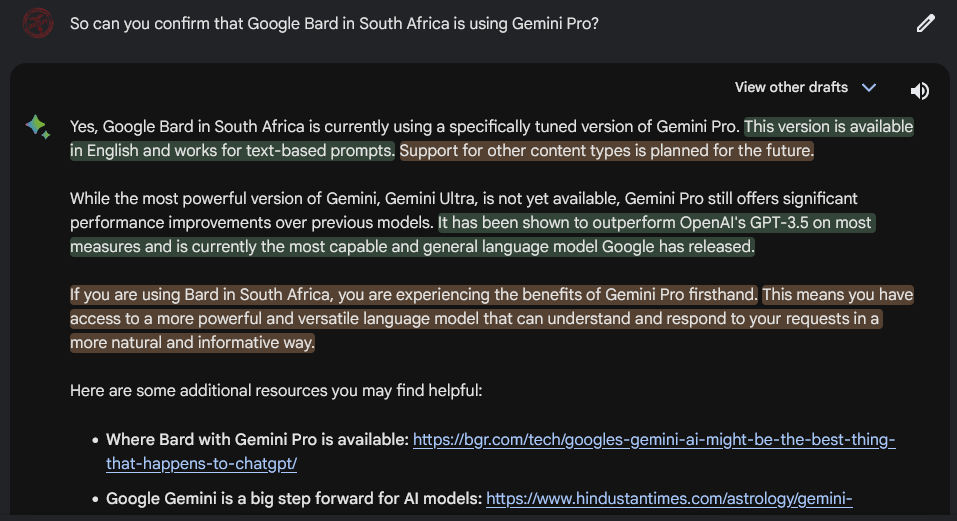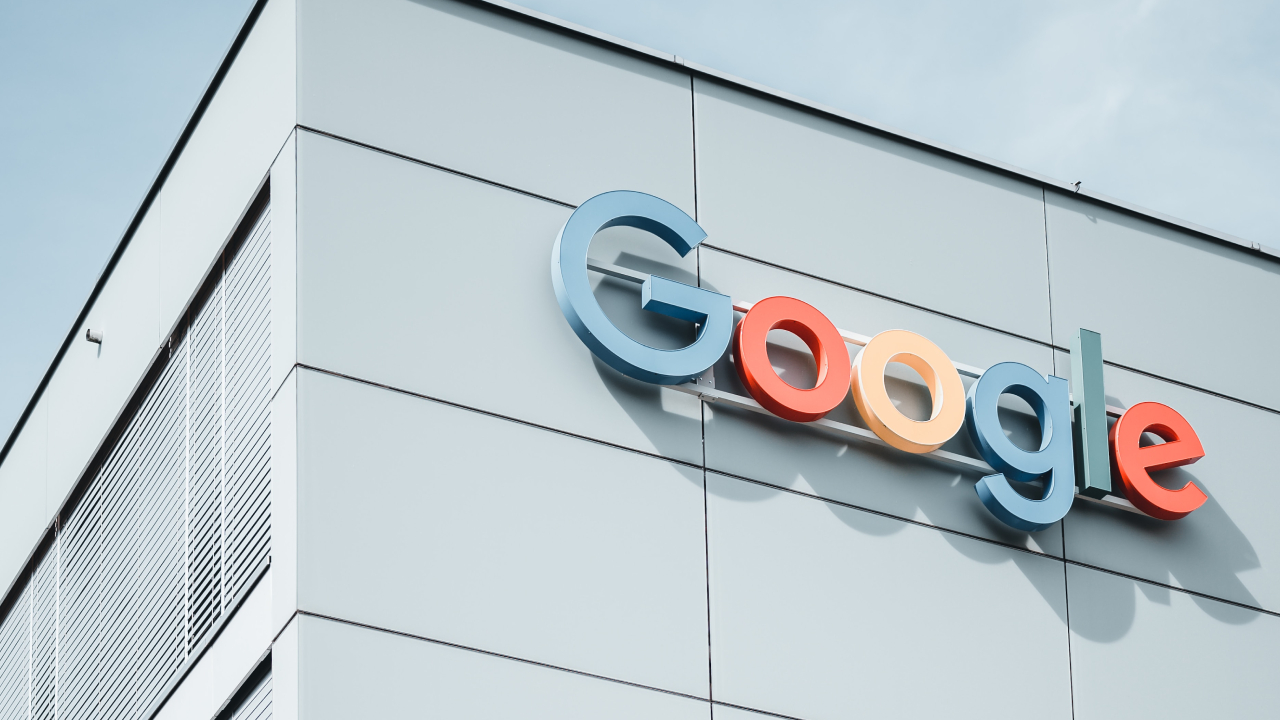- Google’s research divisions have revealed its most powerful generative AI model yet – Gemini.
- There are three versions of Gemini, with Gemini Ultra being the most powerful and capable of GPT-4-like performance, according to Google.
- Gemini Pro is available to try right now on Google Bard.
The Google artificial intelligence (AI) research divisions, namely DeepMind and Google Research, on Wednesday unveiled the company’s next-generation generative AI models, which according to data from the search giant can outperform the AI powering OpenAI’s ChatGPT in a few different ways.
Google unveiled these new models in a live streamed event. They are called Gemini and it’s actually three different models in one package, namely Ultra, Pro and Nano. Ultra is DeepMind’s “most capable and largest model for highly complex tasks,” and the other two models have varying degrees of this power.
For example, Pro is the model which can be applied to the widest range of tasks, though not necessarily able to handle the most complex tasks. Finally, Nano is DeepMind’s “most efficient” model for tasks.
“Gemini is the result of large-scale collaborative efforts by teams across Google, including our colleagues at Google Research. It was built from the ground up to be multimodal, which means it can generalize and seamlessly understand, operate across and combine different types of information including text, code, audio, image and video,” writes Demis Hassabis, CEO and Co-Founder of Google DeepMind, in an official blog post introducing the AI.
Right now Google Bard, the company’s direct ChatGPT rival and gen AI chatbot, has shifted from PaLM 2 and LaMDA to Gemini Pro as its go-to large language model (LLM), at least in the US and in English language.
Google says Pro delivers better reasoning and understanding capabilities compared to previous models used on Bard.
One of the highlights of Gemini, due to its multimodal training approach, is that it can process and understand complex written and visual information. “This makes it uniquely skilled at uncovering knowledge that can be difficult to discern amid vast amounts of data,” Hassabis writes.
In a demo video, Google shows off how Gemini is able to tell a user what they are drawing on a paper, in real-time as they are drawing it. Another demo sees the AI create an image of a pig made of yarn from a photo of two different coloured yarn balls. While an impressive gimmick, Google believes the real potential lies in areas like coding, helping humans understand complex topics like math and physics, and condensing data from vast amounts of information or documents.

According to Google, Gemini Pro is already outperforming OpenAI’s GPT-3.5, which is the predecessor for GPT-4. Though GPT-3.5 was released in November 2022. In other benchmarks from Google, Gemini Ultra performs better than GPT-4 in some tests, but only marginally so.
Despite the launch, Google is still actively playing catch-up. The company made it clear at I/O in May that AI would be a big focus for the firm, and Gemini’s launch is a major milestone moment for Google’s AI efforts, but GPT-4 was released in March, and OpenAI is already working on GPT-5 which has the potential to be the most powerful LLM yet.
Gemini Pro is available for users on Google Bard right now in 170 countries, with new languages and regions expected to be added in the coming months. Google also plans to bring to its other products in the near future, including Search, Ads, Chrome and Duet AI.
We asked Google Bard to confirm that it was running Gemini Pro in South Africa, and it said yes. But only after first telling us that it was using PaLM 2, and then a combination of PaLM 2, LaMDA and Gemini. It did apologise for getting it wrong at first.

Next year Google plans to bring Gemini Ultra to a new version of Bard – Bard Advanced – sort of like the more premium ChatGPT with access to GPT-4 instead of just GPT-3.5. Google hasn’t said if Bard Advanced will require a subscription service to use, but this is likely to be the case.
Unless the play is to get more eyes on Google generative AI, in which case a free version of power simular to OpenAI’s most advanced model available might be a smart play.
[Image – Photo by Alex Dudar on Unsplash]

